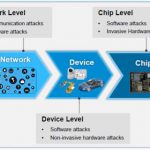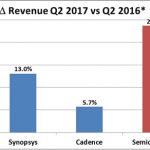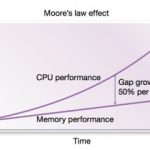You are currently viewing SemiWiki as a guest which gives you limited access to the site. To view blog comments and experience other SemiWiki features you must be a registered member. Registration is fast, simple, and absolutely free so please,
join our community today!
WP_Term Object
(
[term_id] => 14
[name] => Synopsys
[slug] => synopsys
[term_group] => 0
[term_taxonomy_id] => 14
[taxonomy] => category
[description] =>
[parent] => 157
[count] => 755
[filter] => raw
[cat_ID] => 14
[category_count] => 755
[category_description] =>
[cat_name] => Synopsys
[category_nicename] => synopsys
[category_parent] => 157
[is_post] =>
)

WP_Term Object
(
[term_id] => 14
[name] => Synopsys
[slug] => synopsys
[term_group] => 0
[term_taxonomy_id] => 14
[taxonomy] => category
[description] =>
[parent] => 157
[count] => 755
[filter] => raw
[cat_ID] => 14
[category_count] => 755
[category_description] =>
[cat_name] => Synopsys
[category_nicename] => synopsys
[category_parent] => 157
[is_post] =>
)
I mentioned back in June that Synopsys had launched a blog on formal verification, intended to demystify the field and provide help in understanding key concepts. It’s been a few months, time to check in on some of their more recent posts.
First up, it feels like they are finding their groove. Relaxed style, useful topics but now with… Read More
One of the important changes that happen between 1984 and 1988 is the hardware platforms development. Calma evolved, mainframe S140 with 2 combined monitors per terminal in S280 with 2 individual monitors per terminal. This meant that from noisy and darker rooms we move to more quiet and lighted rooms. We doubled the speed and the… Read More
Smart card business is now more than 25 years old, we can assess that the semiconductor industry is able to protect the chips used for smart card or SIM application with a very good level (unfortunately, it’s very difficult to get access to the fraud percentage linked with smart cards, as bankers really don’t like to communicate on… Read More
It really is an exciting time in semiconductors. The benchmarks on the new Apple A11 SoC and the Nvidia GPU are simply amazing. Even though Moore’s Law is slowing, the resulting chips are improving well above and beyond expectations, absolutely.
As I have mentioned before, non-traditional chip companies such as Apple, Amazon,… Read More
You can save a lot of power in a design by gating clocks. For much of the time in a complex multi-function design, many (often most) of the clocks are toggling registers whose input values aren’t changing. Which means that those toggles are changing nothing functionally yet they are still burning power. Why not turn off those clock… Read More
Being the number one EDA and the number one IP company does have its advantages and the resulting foundry relationships are a clear example. One of the DAC traditions that I truly enjoy is the Synopsys foundry breakfasts. Not only does Synopsys welcome scribes, they reserve a table up front for us and Synopsys CEO Aart de Geus has been… Read More
Bluetooth®, WiFi, LTE, and 5G technologies enable wireless connectivity for a range of applications. While each offer unique features and advantages, designers need now to decide which protocol to integrate in a single chip after having test the market by using wireless off-chip solutions. Bluetooth 5 builds upon the success… Read More
I’m a user of many Samsung products as my family has Samsung Galaxy smart phones and my MacBook Pro uses Samsung SSD for storage, so at DAC I attended a breakfast panel with presenters from Samsung, Synopsys and Qualcomm. This was the second day of DAC and they served us breakfast, and with the big names on the panel the room was… Read More
Following up on their webinar on functional safety in FPGA-based designs, Synopsys have now published a white paper expanding on some of those topics. For those who didn’t get a chance to see the webinar this blog follows the white paper flow and is similar but not identical to my webinar blog, particularly around differences between… Read More
Dual in-line memory modules (DIMM’s ) with double data rate synchronous dynamic random access memory (DDR SDRAM) have been around since before we were worried about Y2K. Over the intervening years this format for provisioning memory has evolved from supporting DDR around 1995, to DDR1 in 2000, DDR2 in 2003, DDR4 in 2007 and DDR4… Read More











